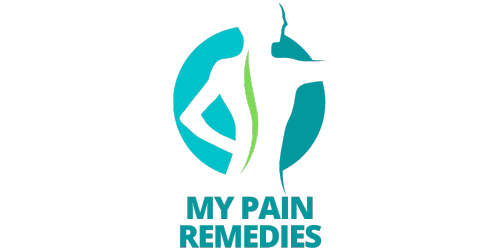Are you seeking relief from chronic pain? Look no further than Specialty Pain Management. With their specialized approach to pain management, their team of expert doctors and medical professionals are dedicated to providing personalized care and finding effective solutions for all types of chronic pain. From innovative treatments to comprehensive rehabilitation programs, Specialty Pain Management is committed to helping you regain control of your life and find lasting relief from your discomfort. Say goodbye to constant pain and hello to a brighter, pain-free future with Specialty Pain Management.

What is Specialty Pain Management
Specialty pain management refers to a multidisciplinary approach aimed at providing comprehensive care and treatment for individuals experiencing chronic or acute pain. This field focuses on addressing the unique challenges associated with pain management, incorporating a variety of techniques and therapies to improve the quality of life for patients. Specialized healthcare providers, including pain management physicians, anesthesiologists, neurologists, physical therapists, psychologists, nurse practitioners, and pharmacists, work collaboratively to develop personalized treatment plans for individuals suffering from various types of pain.
Definition of Specialty Pain Management
Specialty pain management can be defined as a specialized branch of medicine that focuses on the diagnosis, treatment, and management of acute and chronic pain conditions. It involves a multidisciplinary approach that incorporates medication management, interventional techniques, physical and rehabilitation therapies, psychological and behavioral therapies, as well as complementary and alternative medicine. The goal of specialty pain management is to alleviate pain, improve functionality, and enhance the overall well-being of patients.
Importance of Specialty Pain Management
Specialty pain management plays a vital role in healthcare by addressing the complex nature of pain and its impact on individuals’ lives. Chronic pain, in particular, can significantly affect a person’s physical and emotional well-being, impairing their ability to perform daily activities and affecting their overall quality of life. Therefore, specialized pain management approaches are crucial in providing effective pain relief and improving patient outcomes. By employing a comprehensive and individualized approach, specialty pain management teams can help patients regain control of their lives and experience a better quality of life.
Role of Specialty Pain Management in Healthcare
Specialty pain management serves as an integral component of healthcare systems worldwide. It contributes to the overall well-being of patients by providing relief from pain and improving their functionality and quality of life. Through the collaboration of various healthcare professionals, specialty pain management ensures that patients receive a holistic and personalized approach to pain management. By combining different therapeutic modalities, such as medication management, physical therapy, psychological interventions, and alternative medicine, specialty pain management addresses the diverse needs of patients and strives to optimize their healthcare outcomes.
Common Types of Specialty Pain Management
Specialty pain management incorporates various approaches to alleviate pain and improve patient outcomes. These approaches can be broadly categorized into pharmacological, interventional, physical and rehabilitation therapies, psychological and behavioral therapies, as well as complementary and alternative medicine.
Pharmacological Approaches
Pharmacological approaches form a fundamental aspect of specialty pain management. These approaches involve the use of medications to alleviate pain and manage associated symptoms. The type of medication prescribed depends on the underlying cause and nature of the pain. Common medications used in specialty pain management include nonsteroidal anti-inflammatory drugs (NSAIDs), opioids, antidepressants, anticonvulsants, muscle relaxants, and topical agents. Pain management physicians and pharmacists work closely to assess the patient’s needs and develop individualized pharmacological treatment plans.
Interventional Techniques
Interventional techniques are another crucial aspect of specialty pain management. These techniques involve the use of minimally invasive procedures to provide targeted pain relief. Examples of interventional techniques include nerve blocks, spinal cord stimulation, radiofrequency ablation, trigger point injections, and joint injections. Pain management physicians and interventional radiologists perform these procedures in specialized pain clinics or hospitals, aiming to target specific nerves or areas causing pain and restore functionality for patients experiencing chronic or acute pain.
Physical and Rehabilitation Therapies
Physical and rehabilitation therapies play a key role in specialty pain management as they promote healing, improve strength and flexibility, and enhance overall functionality. Physical therapists and occupational therapists work closely with patients to develop personalized exercise programs, stretching routines, and other physical modalities to manage pain and improve physical well-being. These therapies may include techniques such as manual therapy, hydrotherapy, heat or cold therapy, and electrical stimulation. By focusing on restoring function and reducing pain, physical and rehabilitation therapies play a vital role in specialty pain management.
Psychological and Behavioral Therapies
Pain is not just a physical experience; it also has significant psychological and emotional components. Therefore, specialty pain management incorporates psychological and behavioral therapies to address the psychosocial aspects of pain. Psychologists and therapists trained in pain management utilize various techniques, such as cognitive-behavioral therapy (CBT), mindfulness-based stress reduction (MBSR), and acceptance and commitment therapy (ACT), to help individuals develop coping strategies, manage stress, and reduce pain-related distress. These therapies equip patients with the necessary tools to better manage their pain and improve their emotional well-being.
Complementary and Alternative Medicine
Complementary and alternative medicine approaches are increasingly being integrated into specialty pain management. These approaches encompass a range of practices, such as acupuncture, chiropractic care, herbal medicine, and massage therapy, that can be used alongside conventional medical treatments. While the evidence supporting the effectiveness of these approaches varies, many individuals find relief and improved well-being through complementary and alternative medicine. Integrating these approaches into specialty pain management allows patients to explore additional options and find approaches that work best for them.
Conditions Managed by Specialty Pain Management
Specialty pain management addresses a wide range of conditions that cause pain and significantly impact individuals’ lives. Some of the common conditions managed by specialty pain management include:
Chronic Pain
Chronic pain refers to persistent pain that lasts for an extended period, typically beyond the expected healing time. It can result from various underlying causes, such as injuries, nerve damage, inflammation, or certain medical conditions. Specialty pain management aims to provide long-term relief and improve functionality for individuals living with chronic pain.
Cancer Pain
Cancer pain can be a debilitating symptom experienced by individuals undergoing cancer treatment or living with advanced stages of the disease. Specialty pain management plays a crucial role in addressing cancer-related pain, focusing on personalized treatment plans tailored to the individual’s cancer type, stage, and treatment goals.
Neuropathic Pain
Neuropathic pain arises from damage or dysfunction of the nervous system and is often described as a sharp, shooting, or burning pain. Conditions such as diabetic neuropathy, postherpetic neuralgia, and peripheral neuropathy can cause neuropathic pain. Specialty pain management techniques are employed to manage and alleviate neuropathic pain, focusing on medications, nerve blocks, and alternative therapies.
Musculoskeletal Pain
Musculoskeletal pain is commonly associated with the bones, muscles, ligaments, tendons, and joints. It can be caused by various factors, including injuries, overuse, arthritis, or fibromyalgia. Specialty pain management addresses musculoskeletal pain through a combination of pharmacological approaches, physical and rehabilitation therapies, and interventional techniques to improve pain relief and enhance functionality.
Postoperative Pain
Postoperative pain refers to pain experienced after a surgical procedure. Specialty pain management plays a critical role in managing postoperative pain, ensuring that individuals receive appropriate pain relief, thereby minimizing discomfort, promoting faster recovery, and reducing the risk of complications.
Headaches and Migraines
Headaches and migraines are common conditions that can significantly impact daily functioning and quality of life. Specialty pain management involves the diagnosis and treatment of various types of headaches, including tension headaches, cluster headaches, and migraines. The management approaches may include medication management, lifestyle modifications, and interventional techniques.
Fibromyalgia
Fibromyalgia is a chronic condition characterized by widespread musculoskeletal pain, fatigue, and tender points. Specialty pain management plays a crucial role in developing personalized treatment plans that may include medications, physical therapy, psychological interventions, and alternative medicine to help alleviate symptoms and improve the overall well-being of individuals with fibromyalgia.
Arthritis
Arthritis is a condition characterized by inflammation and stiffness of one or more joints, resulting in pain and limited mobility. Specialty pain management focuses on addressing arthritic pain through a combination of pharmacological approaches, joint injections, physical therapy, and lifestyle modifications to improve pain relief and enhance functionality.
Specialty Pain Management Techniques
Specialty pain management employs a variety of techniques to provide effective pain relief and improve patient outcomes. These techniques encompass both traditional and alternative approaches, tailored to the unique needs of each individual.
Medication Management
Medication management forms the cornerstone of specialty pain management. Pain management physicians and pharmacists work collaboratively to develop personalized medication plans based on the type and severity of pain, as well as individual factors such as age, overall health, and potential medication interactions. Medications used in pain management include NSAIDs, opioids, muscle relaxants, anticonvulsants, antidepressants, and topical agents.
Nerve Blocks
Nerve blocks are interventional techniques used to target and block specific nerves or nerve pathways responsible for transmitting pain signals. By injecting local anesthetics or other medications near the affected nerves, pain signals can be interrupted, providing temporary or long-term relief. Common types of nerve blocks include epidural injections, facet joint injections, and peripheral nerve blocks.
Spinal Cord Stimulation
Spinal cord stimulation involves the implantation of a device that delivers mild electrical impulses to the spinal cord. These impulses interfere with pain signals’ transmission, effectively reducing or modifying the perception of pain. Spinal cord stimulation is commonly used in individuals with chronic neuropathic pain or failed back surgery syndrome.
Radiofrequency Ablation
Radiofrequency ablation is a minimally invasive procedure that uses heat generated by radiofrequency energy to destroy a targeted nerve’s functionality temporarily. By causing a lesion on the nerve, the transmission of pain signals can be disrupted, providing relief for prolonged periods. Radiofrequency ablation is often used in individuals with chronic neck or back pain or arthritis of the facet joints.
Trigger Point Injections
Trigger point injections involve the injection of local anesthetics, saline, or corticosteroids into specific muscle knots or trigger points, which are often associated with pain. These injections help alleviate pain and promote muscle relaxation, providing relief for individuals with myofascial pain syndrome or muscle spasms.
Joint Injections
Joint injections involve the injection of medications, such as corticosteroids or hyaluronic acid, directly into the affected joint to reduce inflammation and alleviate pain. These injections can be performed in various joints, including the knees, shoulders, hips, and wrists, depending on the underlying condition causing pain.
Physical Therapy
Physical therapy plays a crucial role in specialty pain management by addressing movement, strength, and flexibility impairments associated with pain. Physical therapists develop individualized exercise programs, stretching routines, and other modalities to improve functionality and reduce pain. Physical therapy techniques may include manual therapy, therapeutic exercises, hydrotherapy, heat or cold therapy, and electrical stimulation.
Occupational Therapy
Occupational therapy focuses on improving an individual’s ability to perform daily activities and regain functional independence. Occupational therapists work closely with patients to develop strategies and adaptive approaches to manage pain while engaging in activities such as self-care, work tasks, and leisure activities. By addressing pain-related limitations, occupational therapy aims to enhance overall functionality and quality of life.
Cognitive Behavioral Therapy
Cognitive-behavioral therapy (CBT) is a psychological therapy often incorporated into specialty pain management. CBT aims to help individuals identify and modify negative thoughts and behaviors associated with pain, developing healthier coping strategies. Through cognitive restructuring and behavioral techniques, CBT equips individuals with skills to manage pain, reduce emotional distress, and improve overall well-being.
Acupuncture
Acupuncture is an alternative medicine practice that involves inserting thin needles into specific points on the body. By stimulating these points, acupuncture is believed to promote the body’s natural healing processes and alleviate pain. Acupuncture may be used as an adjunct therapy in specialty pain management, particularly for conditions such as musculoskeletal pain, migraines, and neuropathic pain.

Benefits of Specialty Pain Management
Specialty pain management offers several benefits, addressing the complex nature of pain and improving overall patient outcomes and quality of life.
Improved Quality of Life
Specialty pain management aims to enhance patients’ overall quality of life by providing effective pain relief and improving functionality. By reducing pain and its associated limitations, individuals can experience improved physical, social, and emotional well-being, allowing them to engage in daily activities and enjoy a more fulfilling life.
Pain Reduction
The primary goal of specialty pain management is to alleviate pain. Through a comprehensive and tailored approach, specialty pain management utilizes a combination of techniques, including medication management, interventional procedures, and various therapies, to target pain at its source and provide effective relief. By addressing different aspects of pain, specialty pain management helps individuals experience a reduction in pain severity and intensity.
Better Medical Outcomes
Specialty pain management plays a critical role in optimizing medical outcomes for individuals suffering from various conditions associated with pain. By managing pain effectively, individuals may experience improved surgical outcomes, better response to medical treatments, reduced hospital stays, and minimized complications. By actively managing pain, specialty pain management teams can support individuals’ overall health and recovery.
Increased Functionality
Pain can significantly limit an individual’s ability to perform daily activities and participate in work or leisure pursuits. Specialty pain management focuses on enhancing functionality through a range of interventions, including medication management, physical and rehabilitation therapies, and occupational therapy. By improving strength, flexibility, and overall physical well-being, specialty pain management enables individuals to regain functionality, leading to increased independence and a more active lifestyle.
Enhanced Emotional Well-being
Living with chronic pain can take a toll on an individual’s emotional health, often leading to anxiety, depression, and diminished quality of life. Specialty pain management addresses the emotional aspects of pain by incorporating psychological and behavioral therapies. By helping individuals develop effective coping strategies, manage stress, and improve emotional well-being, specialty pain management supports a healthier and happier mindset.
Specialty Pain Management Team
Specialty pain management involves a multidisciplinary team of healthcare professionals who collaborate to provide comprehensive care and treatment for individuals experiencing pain. Each team member plays a unique role in addressing the diverse needs of patients.
Pain Management Physician
A pain management physician is a specialized healthcare professional trained in diagnosing and treating various pain conditions. They work closely with patients to develop personalized treatment plans, coordinate care, and ensure optimal pain relief. Pain management physicians may also perform interventional procedures, such as nerve blocks or radiofrequency ablation, to provide targeted pain relief.
Anesthesiologist
An anesthesiologist is a medical doctor specializing in anesthesia and pain management. In specialty pain management, anesthesiologists play a vital role in performing interventional techniques, such as nerve blocks or spinal cord stimulation, to alleviate pain and enhance patient outcomes.
Neurologist
Neurologists specialize in diagnosing and managing conditions affecting the nervous system, including those causing pain. As part of the specialty pain management team, neurologists contribute expertise in diagnosing and treating neuropathic pain or pain related to conditions such as migraines.
Physical Therapist
Physical therapists play a fundamental role in specialty pain management by addressing movement impairments, reducing pain, and improving functionality. They develop personalized exercise programs, stretching routines, and other physical modalities to promote recovery and enhance overall well-being.
Psychologist
Psychologists specializing in pain management focus on addressing the psychological and emotional aspects of pain. They utilize various therapies, such as cognitive-behavioral therapy (CBT) and mindfulness-based stress reduction (MBSR), to help individuals develop coping strategies, reduce pain-related distress, and improve emotional well-being.
Nurse Practitioner
Nurse practitioners are advanced practice registered nurses who play a significant role in specialty pain management. They work closely with patients, providing education, managing medications, and coordinating care to ensure optimal pain relief and overall well-being.
Pharmacist
Pharmacists are essential members of the specialty pain management team, responsible for medication management and ensuring the safe and effective use of medications. They collaborate with pain management physicians to develop personalized medication plans, monitor for potential drug interactions, and educate patients about their medications.
Challenges in Specialty Pain Management
Specialty pain management faces several challenges that impact the provision of optimal care and pain relief for individuals.
Individualized Treatment Approaches
Pain is a complex and subjective experience, making it challenging to develop one-size-fits-all treatment approaches. Specialty pain management requires individualized treatment plans tailored to the unique needs and circumstances of each patient. This calls for comprehensive assessments, close collaboration between healthcare professionals, and ongoing monitoring to ensure treatment effectiveness and address changing needs.
Balancing Pain Relief and Dependency
Specialty pain management strives to provide effective pain relief while minimizing the risk of dependency or addiction to pain medications. This delicate balance requires careful assessment, regular monitoring, and open communication between patients, pain management physicians, and pharmacists. It is crucial to strike a balance between optimizing pain relief and minimizing the potential risks associated with long-term medication use.
Access to Specialty Pain Management
Access to specialty pain management services can be a challenge for individuals living in underserved areas or with limited resources. Specialty pain clinics and healthcare providers may be concentrated in urban areas, limiting access for individuals in rural or remote regions. Addressing this challenge requires increased awareness, improved healthcare infrastructure, and innovative telemedicine services to ensure that individuals in all areas have access to specialty pain management.
Integration with Primary Care
Specialty pain management often requires close collaboration with primary care providers to ensure continuity of care. However, integration between specialty pain management and primary care can be challenging due to fragmented healthcare systems, communication barriers, and competing healthcare priorities. Ensuring effective communication, shared decision-making, and seamless coordination between specialty pain management and primary care is crucial for optimizing patient outcomes.
Patient Compliance with Treatment Plans
Achieving optimal pain relief and improved outcomes in specialty pain management depends on patient compliance with treatment plans. However, factors such as complex medication regimens, side effects, and lifestyle modifications can pose challenges to patient adherence. Healthcare providers must address these barriers by providing adequate education, addressing concerns, and involving patients in shared decision-making to promote treatment plan adherence and long-term success.
Latest Advances in Specialty Pain Management
Specialty pain management continues to evolve, benefiting from various technological advancements and research breakthroughs in the field. Several recent advances have contributed to improving pain management outcomes and expanding treatment options.
Technological Innovations
Technological innovations have revolutionized specialty pain management, providing new tools and approaches to pain assessment and treatment. Advancements such as wearable devices, mobile applications, and remote monitoring systems enable healthcare providers to track pain levels, functional abilities, and treatment responses more effectively. These technologies facilitate personalized care, remote consultations, and real-time adjustments to treatment plans, enhancing patient outcomes and convenience.
Precision Medicine
Precision medicine is an emerging approach that tailors medical treatments to individual patients based on their unique genetic, environmental, and lifestyle factors. In specialty pain management, the concept of precision medicine is gaining traction, allowing healthcare providers to identify individuals who may be more susceptible to certain types of pain or more likely to respond to specific medications or interventions. By taking a personalized and targeted approach, precision medicine holds promise in optimizing pain management and improving treatment outcomes.
Regenerative Medicine
Regenerative medicine involves the use of cell-based therapies, tissue engineering, and other innovative techniques to promote tissue repair and regeneration. In specialty pain management, regenerative medicine approaches, such as platelet-rich plasma (PRP) injections and stem cell therapy, show promise in promoting healing, reducing inflammation, and alleviating pain in conditions such as osteoarthritis or tendon injuries. These cutting-edge therapies offer the potential for long-term pain relief and improved functionality.
Genetic Testing
Genetic testing helps identify genetic variations that may impact an individual’s response to certain medications or susceptibility to certain pain conditions. By analyzing an individual’s genetic makeup, healthcare providers can gain insights into the most effective approaches to pain management and medication selection. Genetic testing holds promise in guiding personalized treatment plans, improving pain relief, and minimizing adverse medication reactions.
Virtual Reality Therapy
Virtual reality (VR) therapy is an emerging modality in specialty pain management that utilizes immersive digital environments to distract and engage individuals, reducing the perception of pain. By transporting individuals to virtual settings and incorporating interactive elements, VR therapy can provide pain relief, promote relaxation, and improve overall well-being. This innovative approach shows potential in managing acute pain, procedural pain, and chronic pain conditions.
Role of Specialty Pain Management in Opioid Crisis
The ongoing opioid crisis has highlighted the importance of specialty pain management in developing alternative pain management strategies, reducing reliance on opioids, and addressing the impact of opioid addiction on individuals and communities.
Alternative Pain Management Strategies
Specialty pain management plays a crucial role in developing and implementing alternative pain management strategies to minimize reliance on opioids. By utilizing a combination of medication management, interventional techniques, physical and rehabilitation therapies, psychological and behavioral therapies, and complementary and alternative medicine, specialty pain management provides patients with effective pain relief options beyond opioids.
Reducing Reliance on Opioids
Specialty pain management aims to reduce the reliance on opioids for pain management, particularly in chronic pain conditions. By employing multidisciplinary approaches and tailoring treatment plans to the specific needs of each patient, specialty pain management teams strive to control pain while minimizing the risks associated with long-term opioid use, including addiction, overdose, and other adverse effects.
Addiction Treatment and Rehabilitation
Specialty pain management recognizes the significant impact of opioid addiction on individuals and communities. It plays a critical role in supporting addiction treatment and rehabilitation efforts for individuals struggling with opioid addiction. By collaborating with addiction specialists, pain management physicians, psychologists, and other healthcare providers, specialty pain management teams contribute to comprehensive addiction treatment programs, including medication-assisted treatment and counseling.
Education and Awareness Programs
Specialty pain management actively engages in education and awareness programs to promote safe and responsible pain management practices and raise awareness about the risks associated with opioids. These programs target healthcare professionals, patients, and the wider community, aiming to enhance understanding, reduce stigma, and promote evidence-based pain management approaches.
Collaboration with Law Enforcement and Policy Makers
Specialty pain management collaborates with law enforcement and policy makers to contribute to the development and implementation of policies aimed at addressing the opioid crisis. By sharing expertise, engaging in evidence-based discussions, and advocating for comprehensive pain management strategies, specialty pain management plays a critical role in shaping policies that promote safe and effective pain relief while mitigating the risks associated with opioids.
Conclusion
Specialty pain management is a critical field within healthcare, addressing the complex nature of pain and providing comprehensive care to individuals suffering from various pain conditions. It encompasses a multidisciplinary approach, incorporating pharmacological, interventional, physical and rehabilitation therapies, psychological and behavioral therapies, as well as complementary and alternative medicine. By employing these diverse techniques and approaches, specialty pain management aims to alleviate pain, improve functionality, and enhance the overall well-being of individuals. With the continued advancements in research, technology, and treatment options, specialty pain management holds immense promise in further enhancing patient outcomes, promoting quality of life, and contributing to the overall well-being of individuals living with pain.


